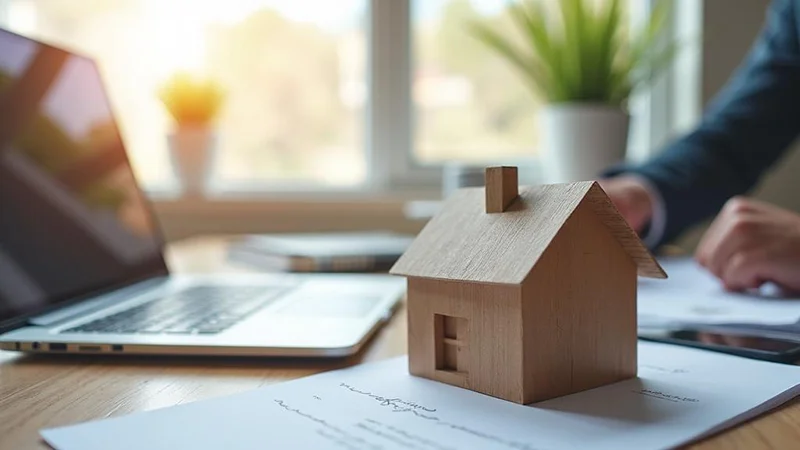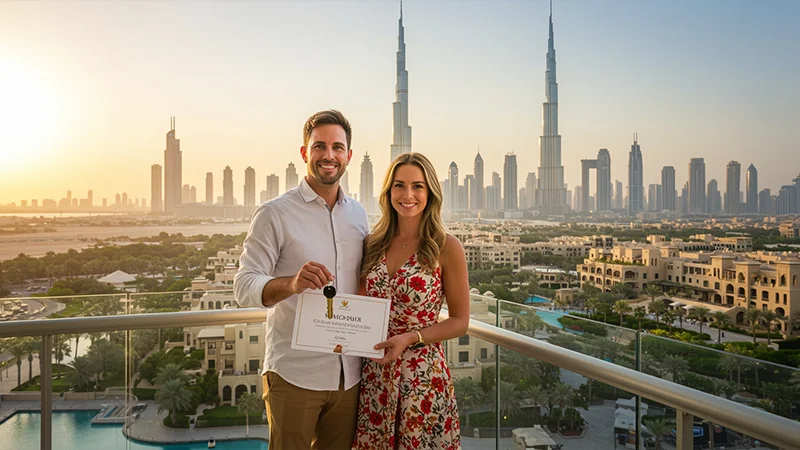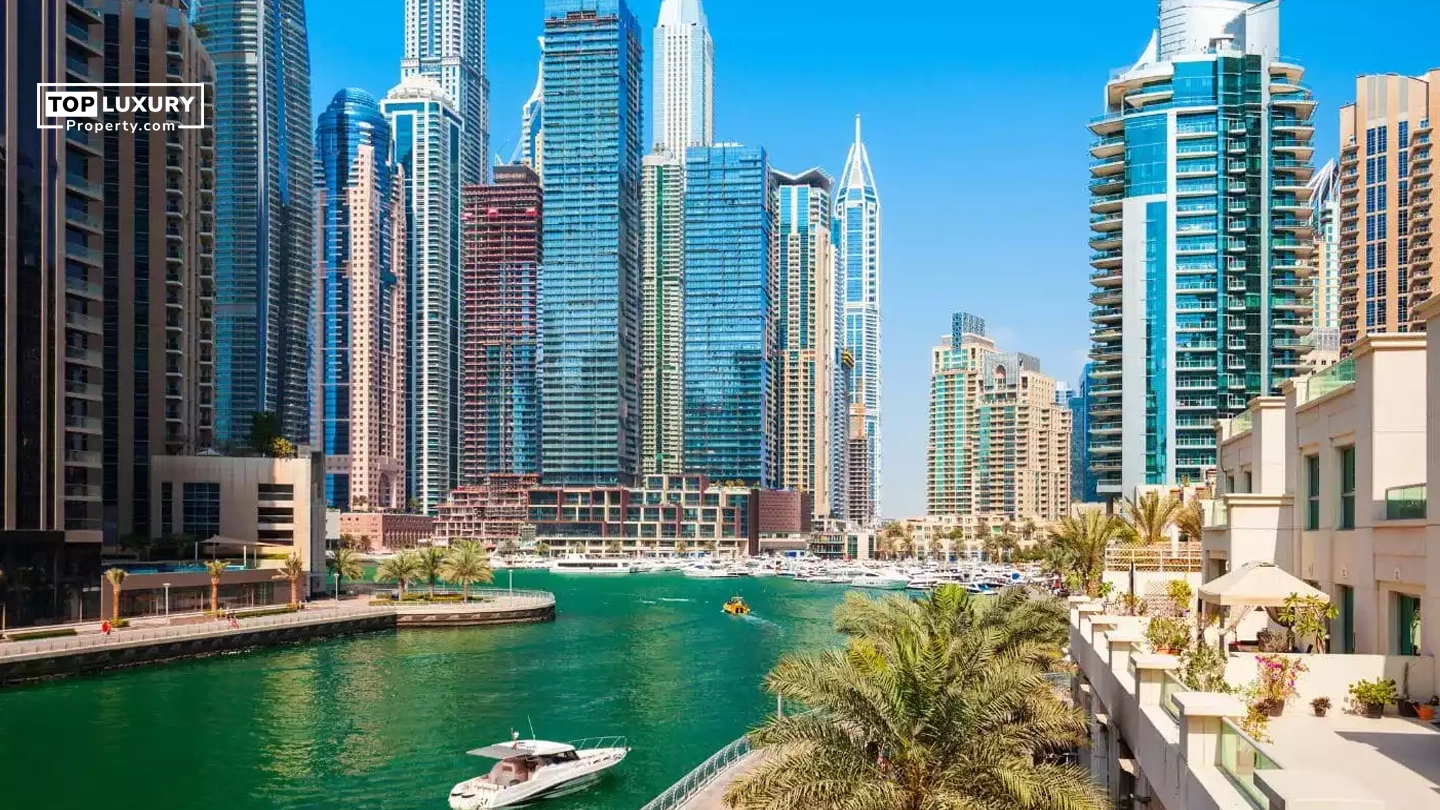It has no tax policy on property, capital gain, or income tax. Beachfront views, attractive pricing, and elegant property options are also plus points. But around all of them, overwhelmed by the buying process?
You’re not alone. Many UK investors and expats find themselves caught between the exciting potential of Abu Dhabi’s property market. The good news? You don’t need to worry. Buying property in Abu Dhabi from the UK is very simple when you understand the process.
Understanding Property Ownership for Foreigners

As a UK citizen, you can indeed buy property in Abu Dhabi, but there are specific rules you need to know. Abu Dhabi Law 19 of 2005 created “Investment Areas” where non-UAE nationals can purchase property.
You don’t need to be a UAE resident to buy property, but it’s important to understand that ownership for non-GCC nationals (including UK citizens) comes in specific forms:
- Usufruct Rights - This 99-year lease gives you the right to benefit from and use the property while maintaining its condition. It functions similarly to how apartments are purchased in the UK. You’ll have full rights to your apartment but not to the underlying land. This is the most common form of “ownership” for apartments.
- Musataha Rights- This allows you to use, develop, and exploit land for 50 years (renewable once for up to another 50 years with mutual consent). If you’re buying land to develop, this will likely be your ownership structure.
- Long-term Lease - These run for a minimum of 25 years and offer another pathway to property rights.
Despite what some developers might advertise, true freehold title is only available to UAE nationals and GCC citizens. The 2019 amendment to Abu Dhabi Real Estate Law has expanded opportunities, but the ownership types above remain the standard for UK buyers.
Where Can You Buy?

UK citizens can only purchase property in designated Investment Areas. These include:
- Saadiyat Island: Located just off downtown Abu Dhabi’s coast and linked by a bridge to the Corniche. It is a cultural hub where you’ll find the Guggenheim, Louvre, and NYU campus. You have multiple residential property options. Mostly upscale villas and apartments clustered around the St. Regis and Saadiyat Beach Golf Course
- Reem Island: Near the heart of Abu Dhabi, Reem’s skyline is dominated by apartment towers, though you’ll spot some townhouses and villas tucked in between. It’s new community and connected to the main Abu Dhabi center by bridges.
- Raha Beach: This waterfront project has three main communities (Al Bandar, Al Muneera and Al Zeina) and overlooks Yas Island. The units are mostly mid-rise apartments with a few villas and great access to Yas Island, the Abu Dhabi airport, and Dubai.
- Yas Island: Home to Ansam (finished late 2017), West Yas (completed 2018), Mayan (ready 2019), and Water’s Edge (also 2019). Construction’s still happening, but you can buy off-plan properties now. The perks? You’ve got Waterworld, Ferrari World, the F1 track, Yas Mall, hotels galore, an Aldar School, and the Warner Brothers Theme Park.
- Al Reef: Near the international airport, this self-contained community offers 2-3 bedroom villas and apartment buildings ranging from studios to three-bedrooms. If Reem, Raha or Saadiyat seem steep, this is your more budget-friendly alternative.
- Hydra Village: A bit further out from Al Reef, another self-contained community focused on 2-3 bedroom villas. They’ve planned for community facilities, shops and services too.
- Al Ghadeer: Right at the Dubai border near Jebel Ali Freezone and the new Maktoum International Airport. Similar setup like Hydra and Reef - a self-contained community with 2-3 bedroom villas plus and apartments from studios to 3 bedrooms.
Other approved areas include Lulu Island, Masdar City, and Mariya Island.
Step-by-Step Buying Process

1. Pre-Purchase Preparation
Before you start browsing listings, make sure you:
- Have a UAE bank account
- Determine your budget.
- Get pre-approval if you need financing.
- Prepare a lump sum (at least 30% of property value plus fees).
2. Finding the Right Property
Working with a reputable broker is essential. The Abu Dhabi real estate market can be confusing for newcomers, especially with many misleading advertisements online.
Choose an agent through recommendations or thorough research. Remember, all brokers have access to all properties in Abu Dhabi, so finding one you trust is more important than finding one with “exclusive” listings.
3. Property Viewings
Be prepared for some challenges during viewings:
- Empty properties might not be well-maintained.
- Tenanted properties can be difficult to view due to cultural considerations.
- You may need to look at similar units in the same building if direct viewing isn’t possible.
4. Making an Offer
Once you’ve found your dream property:
- Submit an offer through your agent.
- If accepted, you’ll sign a Memorandum of Understanding (MOU).
- Pay a deposit (typically 10% of the purchase price).
- Be aware that backing out after signing usually means forfeiting your deposit.
5. Financing Your Purchase
If you’re not a cash buyer, here’s what you need to know about securing financing:
- For properties under AED 5 million, you’ll need a minimum 25% down payment
- For properties over AED 5 million, expect to provide at least 35% down
- For second property purchases in the UAE, the down payment requirement increases to 40%
- Maximum mortgage term is 25 years, with a maximum age of 65 at the time of the final installment for expatriates
- Banks consider your salary and existing debts when determining how much you can borrow
- Not all banks lend on all properties—check if your preferred bank approves loans for your chosen development
Note that you’ll need additional funds (5-6% of the purchase price) to cover fees and registration costs.
6. Completing the Transaction
The transfer process involves
- Obtaining a No Objection Certificate (NOC) from the developer
- Signing the Sale and Purchase Agreement (SPA)
- Paying the balance of the purchase price
- Registering the property at the Department of Municipal Affairs
This process can take anywhere from a few days to a couple of months, depending on whether financing is involved.
Costs and Fees to Consider

Beyond the property price itself, budget for
- Registration Fee—2% of purchase price (usually when buying on the secondary market)
- Commission—2% to your broker
- Mortgage Arrangement Fee—If using finance
- Mortgage Registration Fee—Legally required
- Other developer or bank fees
Legal Considerations for UK Buyers

Inheritance Planning
As a UK citizen, inheritance laws are an important consideration. UAE law follows Sharia principles for inheritance by default, but you can draft a will that operates under UK law instead. This is strongly recommended to ensure your property passes according to your wishes.
Tax Implications
While the UAE doesn’t impose income or capital gains taxes, you may still have UK tax obligations:
- Potential UK capital gains tax when selling
- Possible UK income tax on rental income
- Consideration for non-resident status and tax reporting requirements
Laws Changes
Law Number 3 of 2015 changes sales procedures. The main change is that it creates title deeds for property and a central registry managed by the Department of Municipal Affairs (DMA). So you must acquire the title deeds of your property.
Final Tips for UK Buyers

- Use a lawyer familiar with both UK and UAE property laws.
- Consider currency exchange timing to get the best GBP to AED rate.
- Research the developer’s reputation thoroughly before buying.
- Visit Abu Dhabi and explore neighborhoods before committing.
- Consider property management services if you won’t be living there full-time.
Buying property in Abu Dhabi offers you a chance to own a piece of one of the world’s most dynamic cities. With proper research, professional guidance, and understanding of the legal framework, UK citizens can navigate the process successfully and enjoy the benefits of Abu Dhabi property ownership.






